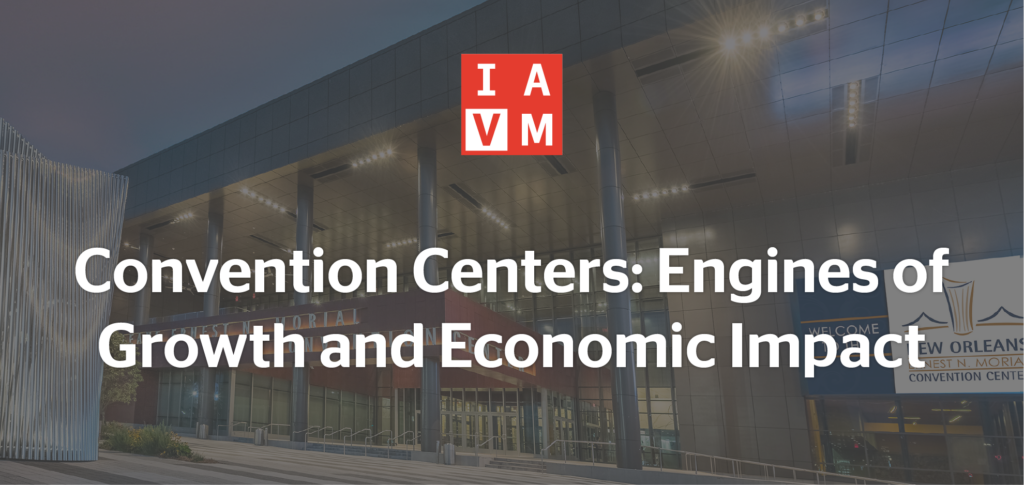
Our industry was the target of another news piece that lacked data and understanding of the convention center industry. A recent New York Times article missed the forest for the trees by criticizing cities for renovating existing convention centers or building new ones. Recent data directly counters this argument, shedding light on why cities—and politicians specifically—continue to support these new builds: to remain competitive, cities must adapt to customer demand for an enhanced, more immersive experience. While the industry data backs up these trends, so does your own experience of how your venue is performing. Here are a few points we want to make you aware of in case you get questions from others:
- The latest barometer from Oxford Economics for the Events Industry Council underscores this shift. Business events in North America are fully back, with future RFP activity already outpacing 2019 levels. The barometer reveals that group room rates have rebounded, marking a critical indicator of hotel pricing health for business events. Additionally, Oxford Economics forecasts that U.S. business travel spending on events will recover to within 1% of 2019 levels this year, with an anticipated 5% growth in 2025.
- Adam Sacks, President of Tourism Economics (an Oxford Economics company), explains in a recent email to IAVM staff, “This is separate from the massive economic benefits that these centers produce for their destinations…. Even if a center operates with a financial deficit, the destination’s economic benefits far outweigh the operating cost of the venue. These venues are catalysts of economic development as companies and investors descend on destinations and are exposed to the best of a city. Further, a convention center is a catalyst for related investment in hotels, restaurants, and entertainment, which make a place more attractive for residents and investors.”
- Our President and CEO, Trevor Mitchell, MBA, FASAE, CAE, CDP, was recently quoted in Skift Meetings response to the NYT piece, noting, “The notion that a convention center is a money suck is counter to how they are operated and the ecosystem they support. Hotels, retail outlets, and restaurants all benefit when a convention is in town—not to mention the jobs created by these centers.”
Convention centers are more than venues; they are engines of opportunity. They foster a ripple effect that strengthens local economies, sustains small businesses, and brings new vibrancy to communities. When cities invest in their convention centers, they invest in a future that brings long-term benefits, not only for visitors, but for everyone who calls the city home.
Latest Global Barometer Points to Sustained
Recovery for Business Events Industry – https://eventscouncil.org/Portals/0/Release_Global%20Events%20Barometer%20Q2%202024.pdf
Global Events Barometer 2024 Q2 Executive Summary – https://online.flippingbook.com/view/740998457/
2023 Global Economic Significance of Business Events Study – https://eventscouncil.org/Leadership/Economic-Significance-Study
